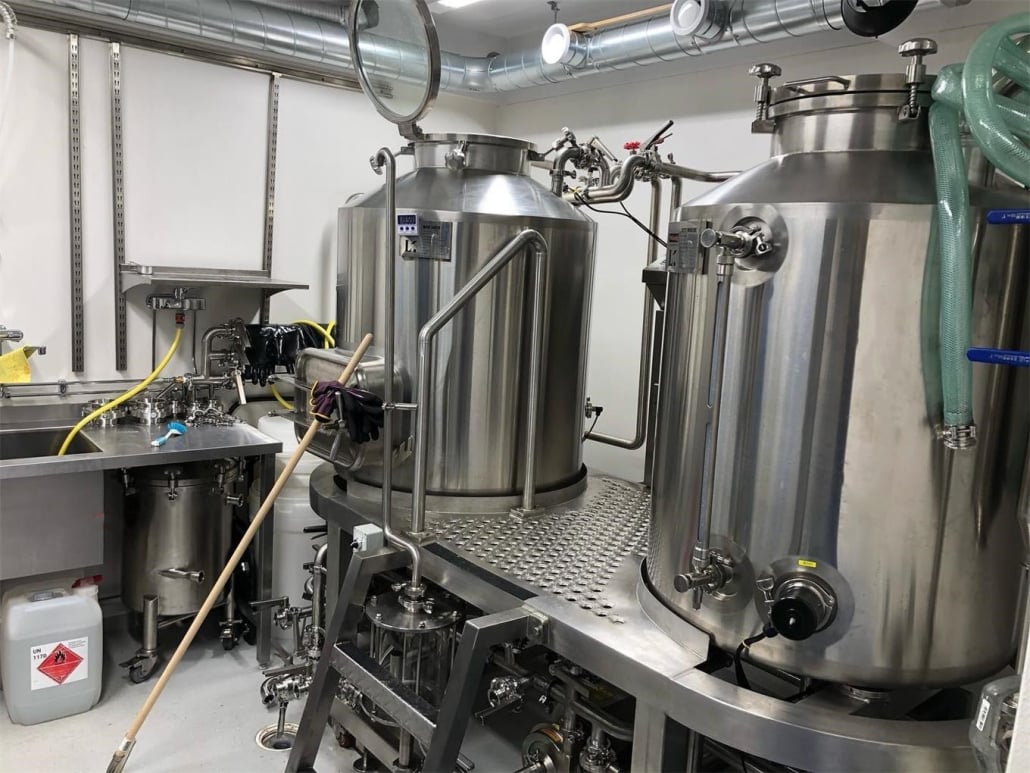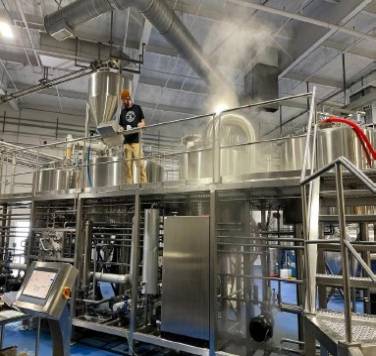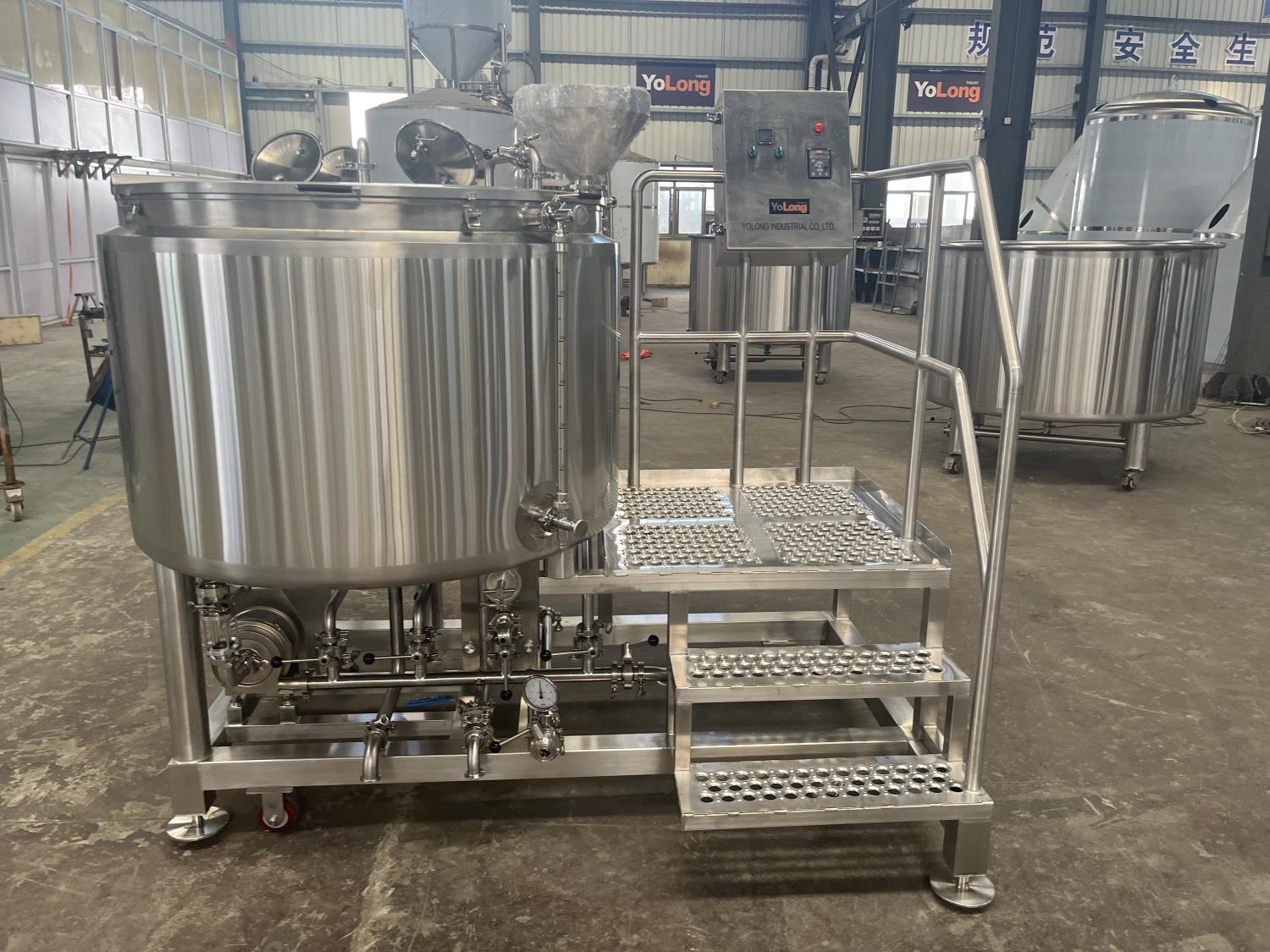Automated Brewing System
Beer brewing has come a long way from its traditional roots. The modern-day solution to brewing challenges is the automated brewing system, a tech-savvy way to craft beer with precision, ease, and customization. Whether you’re a homebrewer or a large-scale commercial brewer, automation takes the guesswork out of brewing and makes the process smarter, faster, and more efficient. But how does this technology work? Is it worth the investment? Let’s dive into this exciting topic and explore everything you need to know about automated brewing systems.
What is an Automated Brewing System?
An automated brewing system is a high-tech solution for brewing beer, designed to streamline and enhance the brewing process. These systems use software, sensors, and precise controls to handle key brewing steps like mashing, boiling, fermenting, and cooling. They allow brewers to produce consistent, high-quality beer with minimal manual intervention.
Think of it as having a robot chef for your brewery. Instead of standing over a mash tun, manually checking temperatures, or timing the hop additions, an automated system does the hard work for you. It’s like turning brewing into a well-orchestrated symphony.

Overview of Automated Brewing Systems
Key Benefits
- Consistency: Ensures every batch of beer meets precise specifications.
- Efficiency: Saves time and reduces errors.
- Customization: Tailors recipes to your taste or business needs.
- Scalability: Suitable for small home setups or large-scale breweries.
- Ease of Use: Requires minimal brewing experience.
Challenges
- Cost: Higher upfront investment compared to traditional systems.
- Maintenance: Needs regular servicing to ensure reliability.
- Learning Curve: Operators must understand the software.
Equipment Guide for Automated Brewing Systems
Automated brewing systems come with a variety of components tailored for specific brewing needs. Here’s an overview of essential equipment and their functions:
| Equipment Type | Functionality | Examples |
|---|---|---|
| Mash Tuns | Maintains temperature for enzymatic activity during mashing. | Grainfather G40, Brewie+ |
| Boil Kettles | Boils wort, sterilizes ingredients, and extracts flavors from hops. | Blichmann Engineering Boilermaker, Spike Brewing Kettles |
| Fermenters | Provides a controlled environment for yeast fermentation. | SS Brewtech Unitanks, Fermentasaurus |
| Chillers | Rapidly cools wort to yeast-pitching temperatures. | Plate chillers, Immersion chillers |
| Control Systems | Centralized automation hubs to manage temperatures, times, and processes. | Brew Commander, SmartPID |
| Pumps and Valves | Facilitates liquid movement between different brewing stages. | March Pumps, Blichmann Riptide |
Brewing Process Using Automated Systems
1. Mashing
The process starts with mashing, where grains are steeped in hot water to convert starches into fermentable sugars. Automated systems maintain precise temperatures, ensuring optimal enzymatic activity. With programmable steps, you can easily manage temperature rests for complex beer styles like lagers or wheat beers.
2. Lautering
After mashing, the wort (sugary liquid) is separated from the grain. Automated systems handle lautering with pumps and valves, delivering consistent flow rates to avoid clogging and ensure maximum sugar extraction.
3. Boiling
During the boil, hops are added to the wort for bitterness and flavor. Automated kettles allow you to program hop additions at specific times, ensuring consistent taste profiles.
4. Cooling
Cooling the wort quickly is crucial to prevent contamination and prepare it for fermentation. Advanced chillers in automated systems make this process fast and efficient.
5. Fermentation
Fermentation takes place in temperature-controlled fermenters. Automation monitors temperature, pressure, and CO2 levels, optimizing yeast performance and beer quality.
6. Packaging
Some automated systems also assist with kegging or bottling, providing an end-to-end brewing solution.
Key Features of Automated Brewing Systems
| Feature | Description |
|---|---|
| Programmable Recipes | Save and repeat brewing recipes with precision. |
| Integrated Sensors | Monitor temperature, pH, and gravity in real-time. |
| Remote Control | Manage your brewing system via smartphone or tablet apps. |
| Custom Alerts | Notify you when action is needed, like adding hops or yeast. |
| Data Logging | Tracks brewing parameters for analysis and troubleshooting. |
Capacity, Design, Layout, and Customization
| Parameter | Details |
|---|---|
| Capacity | Ranges from 1-gallon systems for hobbyists to 50-barrel setups for commercial brewers. |
| Design | Compact designs for small spaces; modular layouts for larger breweries. |
| Customization | Options to upgrade components or integrate additional features like glycol chillers. |
| Space Requirements | Home setups need as little as 2-3 square feet; commercial systems may require dedicated facilities. |
Suppliers and Price Range
| Supplier | Price Range | Specialties |
|---|---|---|
| Grainfather | $1,000 – $3,000 | Compact, all-in-one brewing systems. |
| SS Brewtech | $2,500 – $8,000 | High-quality fermenters and kettles. |
| Blichmann Engineering | $3,000 – $15,000 | Scalable brewing solutions for prosumers and small breweries. |
| Spike Brewing | $5,000 – $20,000 | Heavy-duty systems with customization options. |
Installation, Operation, and Maintenance
| Aspect | Details |
|---|---|
| Installation | May require plumbing, electrical work, and calibration. |
| Operation | User-friendly interfaces guide you through brewing steps. |
| Maintenance | Includes cleaning, software updates, and regular sensor calibration. |
How to Choose the Right Supplier
Choosing the right supplier depends on several factors. Here’s how you can make an informed decision:
| Factor | What to Consider |
|---|---|
| Reputation | Look for customer reviews and industry endorsements. |
| Support | Ensure they offer technical support and training. |
| Customization Options | Check if they allow system modifications to meet your needs. |
| Price | Balance cost with features and scalability. |
Advantages and Limitations of Automated Brewing Systems
| Advantages | Limitations |
|---|---|
| Consistency | High upfront cost. |
| Time-saving | Requires technical knowledge. |
| Scalability | Regular maintenance is essential. |
| Customization | Initial learning curve for beginners. |

FAQs
| Question | Answer |
|---|---|
| What is the cost of an automated brewing system? | Prices range from $1,000 for entry-level systems to $50,000+ for commercial setups. |
| Are these systems suitable for beginners? | Yes, many systems are designed with user-friendly interfaces for homebrewers. |
| Can I brew any beer style? | Absolutely! These systems support a wide variety of beer styles with customizable settings. |
| How long does brewing take with automation? | It typically takes 6-8 hours for brewing, plus fermentation time. |
| What maintenance is required? | Regular cleaning, sensor calibration, and software updates are needed. |
Conclusion
The rise of automated brewing systems has revolutionized the art of beer crafting, making it accessible, efficient, and exciting. Whether you’re a hobbyist dreaming of creating the perfect IPA or a commercial brewer scaling up production, these systems offer unparalleled control and consistency. While the upfront cost may seem steep, the long-term benefits in quality and efficiency make it a worthwhile investment.
Share this entry
Interested in learning more about Brewing Systems including additional details and pricing information? Please use the form below to contact us!
YOLONG BREWERY EQUIPMENT FAQS
- Commercial Brewery / Craft Brewery / Microbrewery / Nanobrewery
- What is The Difference Between Craft Beer and Industrial Beer?
- The Bespoke Differences In Custom Brewing Systems
- Everything You Need to Know About Kettle Souring
- How to Choose Brewing Equipment for Your business?
- How To Choose The-Best Partner To Build Your Commercial Microbrewing System?
- Two Detection Sensors That You Need To Use In Your Brewhouse System
- Remote Control Applications in Brewing Equipment/How does it work?
- How To Clean Your Brand New Brewery Tanks?

